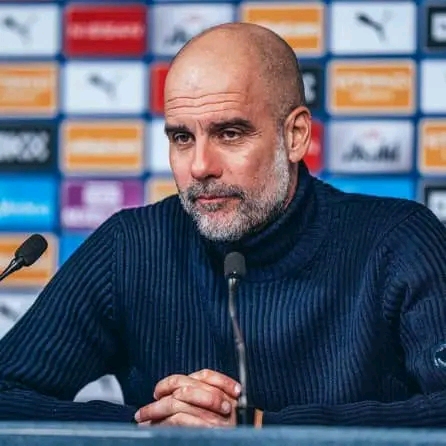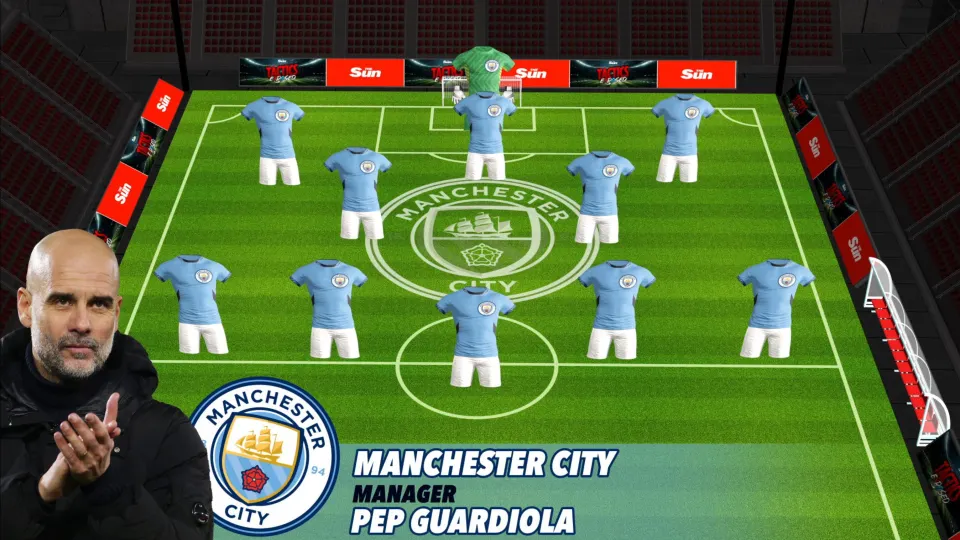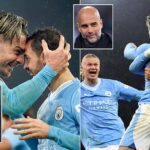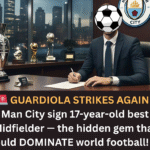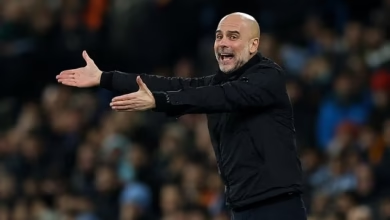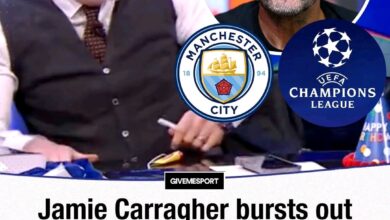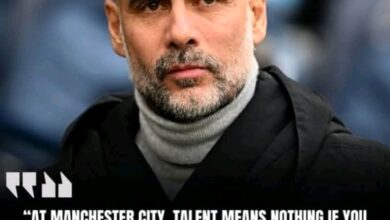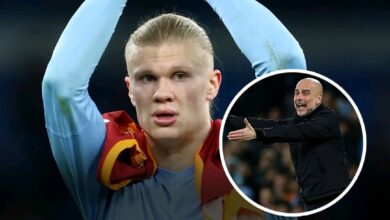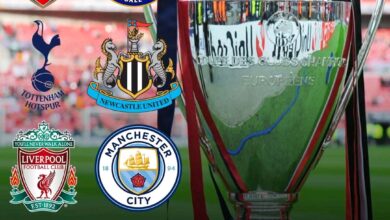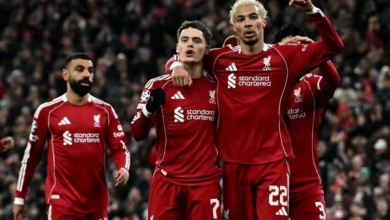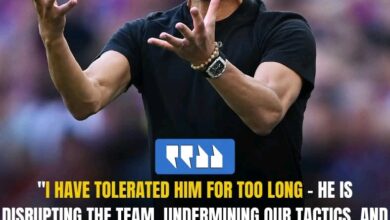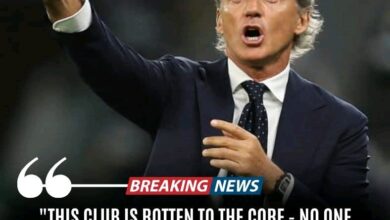Man City’s Akanji out of Madrid and Liverpool games
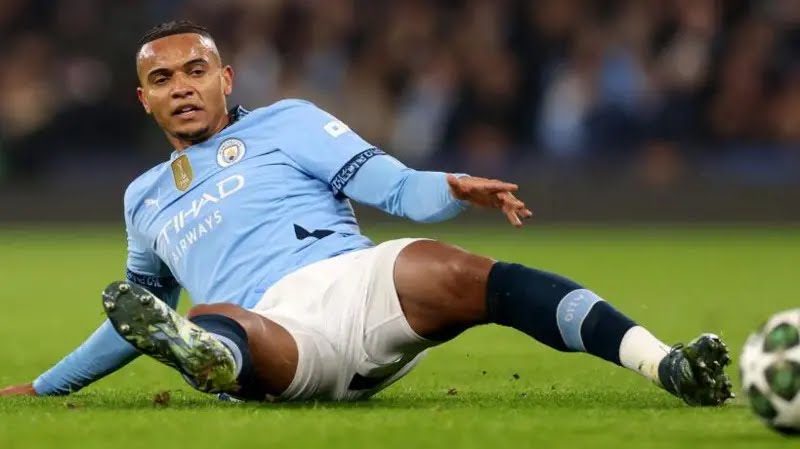
Manchester City, one of the biggest football clubs in the world, has faced an unpredictable season, marred by a series of injuries that have greatly affected their performance on the pitch. These issues have particularly centered around their defense, where key players have been unavailable for large parts of the campaign. One of the more recent casualties of this injury crisis is Swiss center-back Manuel Akanji. Akanji’s absence from City’s upcoming crucial matches, including their Champions League tie against Real Madrid and their Premier League fixture with Liverpool, highlights the ongoing difficulties the club faces in fielding a consistent, fit defense.
Injuries have long been a concern for Pep Guardiola and Manchester City. This season, the team has struggled with a series of significant injuries to key players, which has hindered their ability to perform at their usual high level. City’s defense, in particular, has been heavily affected. The absence of players like John Stones, Nathan Ake, and Ruben Dias at various points in the season has meant that Guardiola has had to constantly adjust his tactics and starting lineup.
Defensive injuries are always a significant blow to a team that relies on solid, organized play at the back. But for Manchester City, the issue is even more pronounced because of their possession-based style of play under Guardiola. Defenders at City are not just there to clear the ball or make tackles – they are expected to play out from the back, initiate attacks, and contribute to the team’s fluid passing game. When key defenders are missing, Guardiola’s tactical flexibility is limited, and the team can become unbalanced.
One of the most critical injuries to occur this season was that of Rodri, the team’s main defensive midfielder and a vital component of the team’s buildup play. In September, Rodri suffered a ruptured ACL during a Premier League match against Arsenal. This injury forced Guardiola to find an alternative solution in the midfield, often deploying players out of their natural positions. Stones, who has been a key part of City’s defense, was even used in a central midfield role during some matches, a move that, while effective in covering for Rodri’s absence, is not a long-term solution.
The injury crisis has taken its toll on City’s performances this season, and while they have remained competitive, their results have been more inconsistent than in previous campaigns. Defenders like Stones, Dias, and Ake have only recently returned to the squad, and their fitness has fluctuated, causing Guardiola to make constant changes to the backline
Manuel Akanji’s arrival at Manchester City in the summer of 2022 was seen as a key part of Guardiola’s defensive reshaping. After several seasons of battling injuries and inconsistencies in their backline, the addition of Akanji, a player who had impressed during his time at Borussia Dortmund, was expected to provide more stability and depth to the squad. Akanji, known for his strong physical presence, composure on the ball, and ability to play both center-back and full-back, seemed like the ideal candidate to bolster City’s defense.
Akanji quickly adapted to City’s high-pressing system, offering a reliable and versatile option for Guardiola. His ability to read the game, combined with his pace and technical ability, made him an essential part of the team. Throughout the 2022-2023 season, Akanji featured regularly, forming solid partnerships with other defenders like Ruben Dias and Nathan Ake.
However, this season, Akanji has also been impacted by the injury woes that have plagued the entire squad. His latest setback, a muscular issue, has ruled him out of two crucial fixtures for Manchester City: the second leg of their Champions League knockout tie against Real Madrid and their Premier League clash against Liverpool. This is a huge blow for City, as Akanji has been one of the more consistent defenders for them this season, especially when the team has struggled with other injury concerns.
The timing of Akanji’s injury could not have come at a worse moment for Manchester City. With Real Madrid and Liverpool both set to provide tough challenges, City will have to cope without one of their most reliable defenders. Guardiola will be forced to adjust his lineup once again, making it even more difficult for City to maintain the level of performance they need in these high-stakes matches.
Akanji’s injury is not only a blow to Manchester City in terms of defensive depth, but it also represents a more significant problem for Guardiola’s tactical approach. As mentioned, City’s defensive system is built on fluidity, with defenders often stepping into midfield and playing out from the back. Akanji has been a key player in this aspect, offering Guardiola the option of a ball-playing defender who is comfortable stepping into midfield when needed.
Without Akanji, City will have to rely on other defenders who may not offer the same versatility. Ruben Dias, although an excellent central defender, is not as comfortable with the ball at his feet as Akanji. Similarly, Nathan Ake, who has been impressive this season, is more of a traditional center-back and may struggle with the demands of playing in a more fluid, possession-based system.
Guardiola has often spoken about the difficulty of managing a squad with multiple injuries, particularly in defense. City’s style of play requires a high level of technical skill and tactical understanding, and without all of his key players available, Guardiola has to make adjustments that could disrupt the team’s rhythm. The absence of Akanji, then, is a significant setback for City as they aim to balance domestic and European commitments.
It’s not just the injuries that have made this season more challenging for Manchester City. The team has also been dealing with a variety of other issues that have impacted their overall performance. Despite having one of the most talented squads in Europe, City has struggled to maintain the same level of dominance that they’ve become known for under Guardiola. The inconsistency in results has been a theme this season, with City dropping points in matches they would have expected to win comfortably in previous years.
Part of the issue stems from the defensive fragility caused by the injury crisis, but there are also questions about the team’s attacking output. With key players like Jack Grealish and Erling Haaland being relied upon for goals, the team has sometimes lacked the creativity and fluidity that they’ve had in previous seasons. The team has been more reliant on individual brilliance rather than the cohesive, team-oriented play that Guardiola has built his success on. This shift has been noticeable in both their domestic and European matches.
Guardiola’s tactical experiments, particularly in the midfield and defense, have sometimes worked, but not always to the same effect as in previous seasons. The injury to Rodri, in particular, has forced Guardiola to make drastic changes to his lineup, and while Stones has filled in admirably, it’s clear that he is not a long-term solution to the role. This has meant that City has not been able to dominate possession and control games in the same way they used to, and this has had a knock-on effect on their results.
The upcoming matches against Real Madrid and Liverpool are critical for City’s hopes of silverware this season. The Champions League remains a priority, and with Real Madrid always a tough opponent, City will need all hands on deck to progress. Similarly, Liverpool, while not as dominant as in previous years, are still a dangerous side capable of causing problems. Losing key players like Akanji for these matches only increases the pressure on Guardiola and his squad.
Looking ahead, the injury to Manuel Akanji is a reminder of the unpredictable nature of football. Injuries can change the course of a season in an instant, and for Manchester City, the absence of key players has undoubtedly made their campaign more difficult. Akanji’s injury, while not the most severe of the season, adds to the growing list of concerns Guardiola has to manage.
The Swiss defender’s return to fitness will be crucial for City’s defense moving forward, especially as the team enters the business end of the season. With so many big matches still to come, City will need their top players available and fit to compete on all fronts. Akanji’s recovery will be closely monitored, as his role in the team remains an important one. He is one of the most consistent defenders City has, and his versatility in defense is invaluable for Guardiola.
In the long term, Manchester City will need to find solutions to their defensive injury problems. While the squad is deep, Guardiola will need to ensure that his players are better managed in terms of fitness to avoid more long-term injuries. The club has already shown an ability to recruit quality players, and if Akanji’s injury highlights one thing, it’s the importance of having a strong, versatile defensive unit to cope with the demands of a long, competitive season.
For now, City’s focus will be on the immediate challenges ahead, hoping that their defensive depth and attacking quality can carry them through despite the setbacks. Whether or not they can overcome these hurdles will depend on the resilience of the players, the tactical adjustments made by Guardiola, and, ultimately, the recovery of key players like Akanji.
As Manchester City continue their quest for glory on multiple fronts, the absence of a key player like Akanji may prove to be a significant obstacle, but it also provides an opportunity for other players to step up and demonstrate their worth in the crucial months to come.

